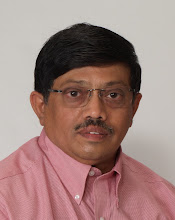"Myths and Facts: Bangladesh Liberation War" by B Z Khasru
The recent declassification of US Government archives has provided a rich mine of information on US behavior
during the1971 war between India and Pakistan that liberated Bangladesh.
B Z Khasru, a US based journalist, has done extensive
research of this newly declassified data to bring additional information about
the 1971 events.
It was Bhutto, not Mujib, who broke Pakistan, says
General Yahya Khan in an affidavit issued just before his death. All that Mujib-ur-Rahman wanted was for
Bengal to have its fair share of growth, jobs, public purse and foreign aid;
and the opportunity to grow through trade with India. Zulfikar Ali Bhutto had a tacit preference to
let East Pakistan secede (and leave the West to be governed by Bhutto) than be
subject to a weak federation ruled by Bengalis.
Bhutto preferred power than Pakistan.
Yahya was no angel either. His motivation to conduct elections was the
probability of getting to stay in power for a long period of time since his
Intelligence officers advised him that the elections might not result in a
clear majority and the framing of a new constitution within 120 days after the
elections is unlikely. His allusion to
Mujib as the future PM of Pakistan was more to scare the politicians in the
West and the army to unite.
However, Khasru’s book is more about how US misplaced its
principles and misread the tea leaves.
Nixon and Kissinger saw the entire problem through the
narrow prism of securing friendship with China through the benevolence of Yahya
Khan.
1.
The aspirations of 75 million people in the East
and the genocide unleashed on them were not important. When US Consul at Dacca, Archer Blood,
accused the US Government of “moral bankruptcy” for its “posture of pretending
to believe Pakistan Government’s false assertions”, Nixon recalled Blood and
transferred him to Personnel.
2.
The focus was on keeping Yahya Khan pleased
since he was the conduit to the secret parley with China. US would continue to publicly support
Yahya’s unified Pakistan; if East Pakistan requires US support, US would
decline to give such a support “based on the premise that in US opinion West
Pakistan would not use force to bring a solution”.
Nixon and Kissinger were amazingly consistent in
“misreading” the tea leaves:
1.
Kissinger theorized that India would not want an
independent Bangladesh since that would induce India’s West Bengal province to
secede from India and unite with Bangladesh!
2.
Nixon preferred to support Pakistan wherever
possible because “Yahya was more decent to US than Indira Gandhi was”. Kissinger agreed, “Yahya was decent and
reasonable if not politically smart”.
3.
Kissinger felt Indian occupation of Bangladesh
would be even more violent and would make Pakistan’s occupation look like child play.
When Indian army entered Dacca, Nixon was surprised to see locals welcoming the liberating army and asked: “You see those people
welcoming the Indian troops. Why then
are we going through this agony?” Kissinger replied: “To prevent the West Pakistan army from being
destroyed; to retain our Chinese arm; to preserve balance of power with the
Soviet Union”.
Nixon had a strong bias against India. In his private conversations with Kissinger,
Indians were referred to as “cowards” and “savages”. Nixon tried to support Pakistan in several
ways:
1.
When his State department disagreed with
Kissinger that US owed arms support to Pakistan (when Pakistan invoked the
bilateral agreement with US and sought arms), Nixon orchestrated provision
through intermediary countries. Jordan
did provide aircrafts and pilots to Pakistan.
Iran agreed to but rescinded in the last minute. Kissinger admitted in 1972 to China that US
supplied arms via third countries. The
augmentation did not have an impact.
2.
Nixon urged China to move troops to the Indian
border saying “The Indians have got to get a little scared”. China did not
oblige because of its concerns about Soviet intervention under the Indo Soviet
treaty.
3.
Nixon moved US Seventh fleet to Bay of Bengal to
increase threat perceptions though this did not have any impact on the war.
4.
Nixon warned Soviet Union that any help to India
would leave a scar in US-Soviet relationship for many years after the war
ended. Nixon told a visiting Soviet
minister: “The Indians are cowards. They
are raping and murdering. They are
pretty vicious”. (Historians would
consider this to be a Presidential lie).
Kissinger felt Nixon’s statement would make Soviets reduce their support
to India. They did not.
In Khasru's book, Indira Gandhi emerges as a good leader. She worked on domestic opinion before
supporting Mukti Bahini. She worked on
international opinion before invading East Pakistan. She read the geopolitical scenario rightly
and concluded a treaty with the Soviet Union to ensure China does not start any
conflict to step up pressure against India.
She was firm in declining to conform to UN resolution (orchestrated by
Nixon) to ceasefire and withdraw from each other’s territories (the usual end
for every India Pakistan war in the past).
In the end it came down to Nixon and Kissinger not
reading an important import of that amazing document, the Declaration of
Independence of the United States of America, which read: “Whenever any government becomes destructive of man’s
inalienable rights to life, liberty and pursuit of happiness, it was the right
of the people to alter or abolish it”.
